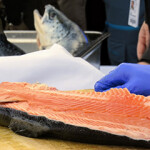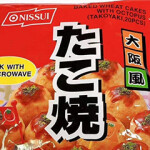Papua New Guinea skipjack, yellowfin tuna fishery enters Marine Stewardship Council assessment
A newly formed tuna fishery in the South Pacific has entered assessment for Marine Stewardship Council (MSC) certification.
The Papua New Guinea (PNG) Fishing Industry Association’s purse seine skipjack and yellowfin tuna fishery formally entered into full MSC assessment on 26 February, 2019. The fishery encompasses all tuna caught in anchored and drifting fads and free schools in both Papua New Guinea’s exclusive economic zone and its archipelagic waters, and processed within the country.
“[This] is an important milestone for the PNG FIA and its members. We are elated and excited about this prospect and the positive impact it will have on the development of our domestic tuna industry,” Fishing Industry Association (FIA) President and Chairman Sylvester Pokajam said in a press release.
The FIA announced its intention to submit the fishery for MSC assessment in August 2018. The fishery includes onshore processing plants in Papua New Guinea, supported by PNG-flagged vessels and locally-based foreign fishing vessels.
According to FIA consultant Marcelo Hidalgo, the group has already identified and made progress toward several of its objectives in improving the fishery.
“We have engaged for some FIPs, [we are] implementing Global Ghost Gear Initiative fishing best practices, and [aiming for] transparency in traceability,” Hidalgo told SeafoodSource in an email. “The National Fishery Authority is highly supporting the process.”
Pokajam echoed Hidalgo’s welcoming of support from the PNG government.
“The collaboration and support between PNG FIA and the National Fisheries Authority has enabled us to proceed to this stage,” Pokajam said. “I acknowledge the technical support from the managing director and relevant staff of NFA for their support in the preparatory work through the submission of technical data and information which have culminated in this announcement. We have now proceeded to the real challenge to verify and justify to the test of assessment against the MSC’s prescribed principles.”
SCS Global Services will serve as the conformity assessment body for the MSC assessment and will make its site visit to PNG mid-March, Pokajam said. The visit will include consultations “with all relevant national stakeholders,” he said.
As previously reported by SeafoodSource, PNG’s push for its own MSC certification represents a rift between it and Pacifical, which was founded to market the tuna caught in the waters of the members of the Parties to the Nauru Agreement, of which PNG is a part.
Pokajam said the FIA was pushing for its own MSC certification to “enable PNG FIA members to manage and operate the domestic tuna industry.”
“The immediate benefits to PNG include improving the robustness of the PNG’s national governance framework, opening new markets for PNG made products, which will result in expansion of the domestic tuna industry production base thereby effecting increased employment and foreign exchange receipts,” Pokajam said. “It will also, promote a global image for PNG as ‘clean green sustainable,’ while adding value to PNG as a country that promotes a well-managed fishery resource.”
He said there has already been interest in joining the scheme from distant-water fishing nations fleets.
If and when MSC certification is achieved for the country’s tuna fisheries, Pokajam said the FIA and Papua New Guinea’s National Fishery Authority will subsequently pursue MSC certification for the country’s other major fisheries, including its prawn, lobster, crab, and sea cucumber fisheries.
Photo courtesy of Marcelo Hidalgo






Share